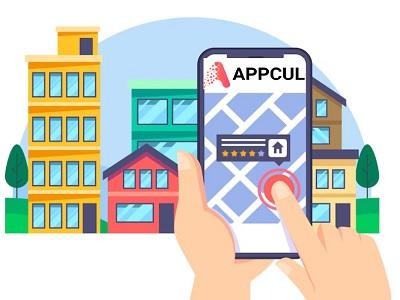How to Build a Real Estate App: Benefits, Features, and Cost

Real estate has always been a thriving industry, and with the advent of mobile technology, it's no wonder that real estate apps are booming. From searching for properties to arranging viewings, a real estate app can significantly streamline the process. If you're looking to build your own, here's a guide to help you navigate through the process.
Benefits of a Real Estate App:
Convenience for Users: With just a few taps, users can access property listings, view photos, and schedule viewings.
Wider Reach: An app can potentially reach a global audience, expanding your market reach far beyond local limits.
Instant Notifications: Users can receive instant updates on their property interests, new listings, or any changes in price.
Advanced Search Features: Filter by location, price, property type, etc. This makes the search process more efficient.
Enhanced Engagement: With features like push notifications, chat, and virtual tours, users are more likely to engage and spend more time on the app.
Must-have Features for a Real Estate App Development:
User Registration and Profile: Secure registration and a user-friendly profile management system.
Advanced Search: Filters such as location, price range, property type, number of bedrooms, etc.
Property Details: Comprehensive information about each property, including photos, floor plans, amenities, and more.
Map Integration: This allows users to view properties on a map, and explore nearby schools, parks, and other amenities.
Favorites/Bookmark: Users can save and revisit their favorite listings.
Push Notifications: Inform users about new listings, price changes, or other relevant updates.
Agent Profiles: Detailed profiles for real estate agents with ratings, reviews, and contact information.
Virtual Tours: Integrate 360-degree virtual tours of properties.
Chat or Messaging System: Direct communication channel between buyers/renters and agents.
Mortgage Calculator: A handy tool for users to estimate their monthly mortgage payments.
Cost Factors:
Building a real estate app can vary widely in cost depending on the features, complexity, and region where you're hiring developers. Here's a breakdown of potential cost factors:
App Design: A well-designed UI/UX can range from $5,000 to $15,000.
Development: Depending on the complexity, platform (iOS, Android, or both), and region, this can range from $20,000 to $150,000+.
Backend Infrastructure: Cloud hosting, databases, and server costs. This can add another 5,000 to 25,000, depending on scale and requirements.
Third-party Integrations: Costs for integrating mapping services, payment gateways, or other tools.
Maintenance: Ongoing costs to fix bugs, update the app, and keep it running smoothly can be 15-20% of the initial development cost annually.
In conclusion, while building a real estate app can be a significant investment, the potential returns regarding engagement, revenue, and brand presence can be substantial. With careful planning, a clear vision, and the right team, your real estate app can be a game-changer in the market.
Advertise on APSense
This advertising space is available.
Post Your Ad Here
Post Your Ad Here
Comments